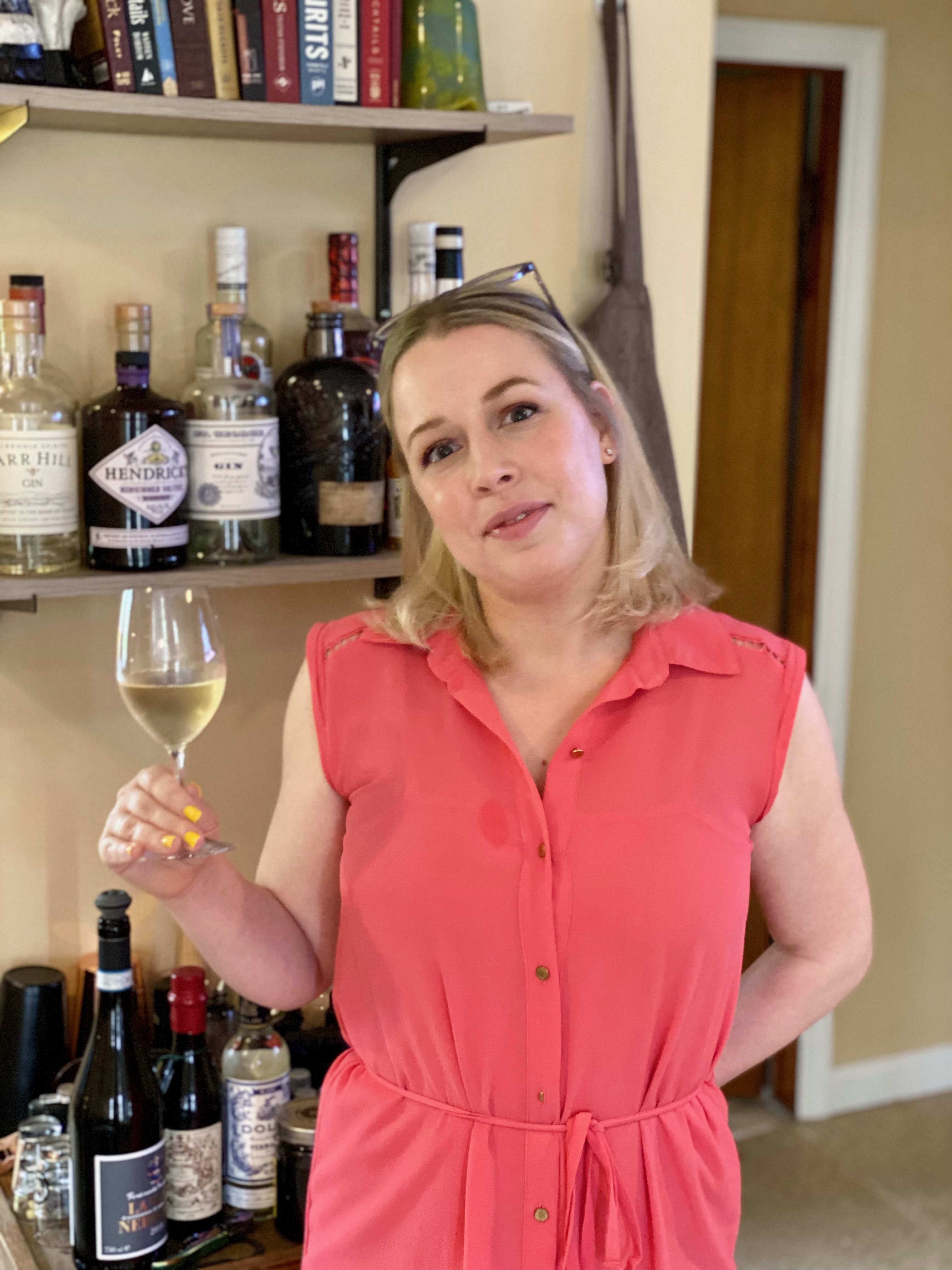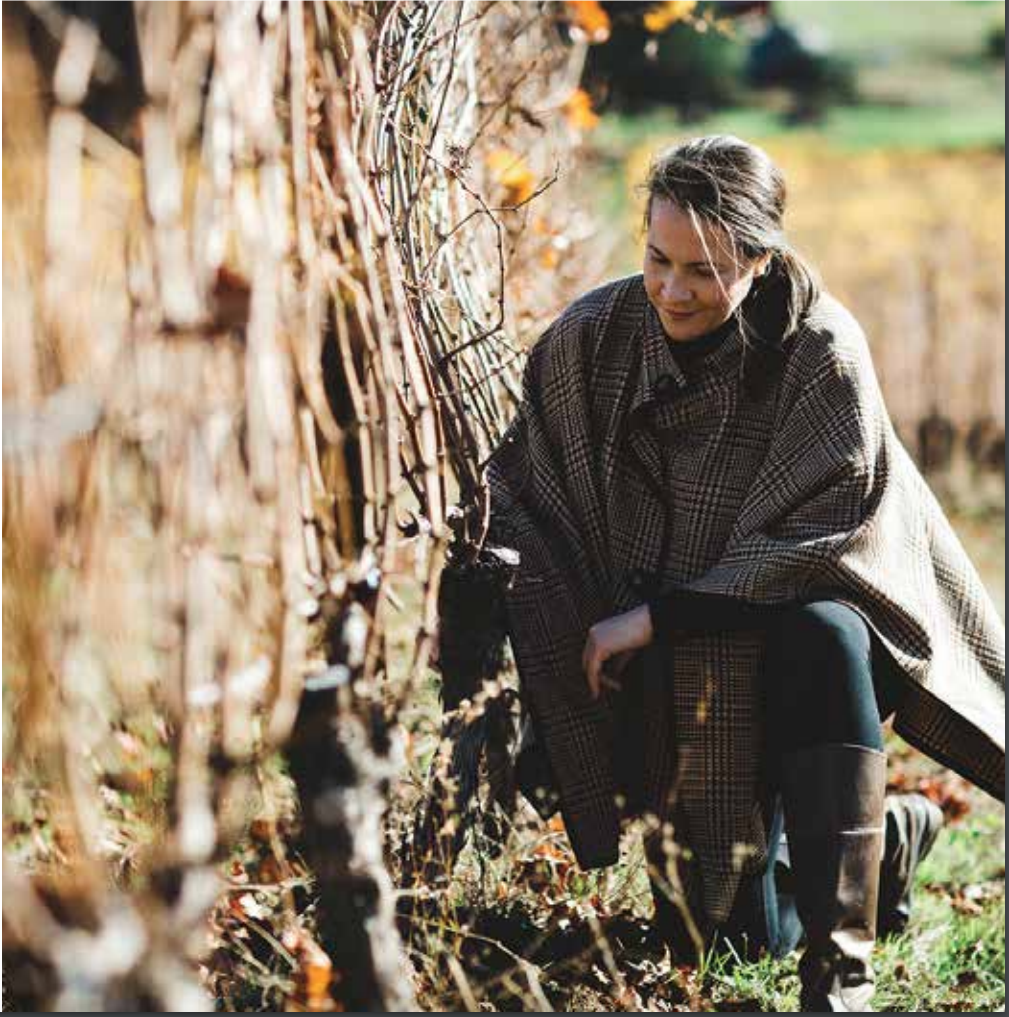
The organic wine market is growing rapidly in the US now that Americans are trending more health conscious. The average consumer is asking more and more about how the grapes are grown and the wine produced. Words like "organics," "biodynamics," and "sustainability" are becoming more transparent and common.
Cooper Mountain Vineyards is a winery ahead of the curve in the Willamette Valley, being certified organic since the early '90s. Barbara Gross, co-owner and operator, sat down to speak with me about growing up on a Willamette vineyard, finding her place among the vines and maintaining the spirit of the vineyard through the good times and the bad. She also touches upon what’s in store for the Willamette Valley as a whole, and lending an ear to her consumers about what they want when it comes to drinking wine.
Barbara Gross: It was not. So I suppose it's the classic story of coming to the wine industry at birth, but not really totally accepting it until running away from it in classic adolescent fashion. I have a brother and sister and none of us actually wanted anything to do with this.
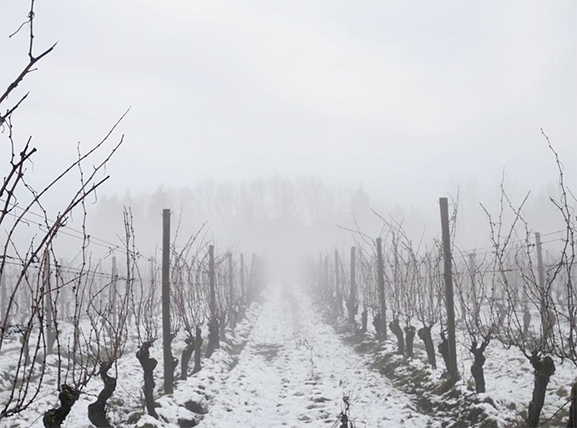 I'm sure others can relate in their own way.
I'm sure others can relate in their own way.Yes. This sounds like the most ridiculous thing as an adult, but when you're watching all your buddies go to Disneyland, to Disney World and your folks are dragging you to Burgundy and Alsace in France, and you're too young to understand what is happening. But you just know you're different and so you want nothing to do with it at all. So that is my story.
Totally understandable.
The most privileged story you've ever heard and I apologize for that, but it just is what it is.
It's your story and it's great that you own it! You have been certified organic and biodynamic for quite some time now. Do you see that becoming more of a trend in the Willamette Valley?
Yes. I would say that we're a little different in the Willamette Valley and the Willamette Valley is a little different in at least New World regions, California being the big one to the south and that's a massive generalization. But for better, for worse, I feel like we're in a little bit of a second renaissance of organics, biodynamics, regenerative that is being driven by consumers. We've now almost been certified for 20 years. We've been practicing the program since the early '90s.
You are at the forefront of the organic movement and that's amazing! COVID-19, it's been a challenge across the board for everybody. What are some challenges that you specifically face as a winery and some things you've done to overcome those challenges?
At this point we're tired because all we've done is make pivots and changes and et cetera, et cetera. Obviously, my tasting room and my hospitality program were shut down and it all went online. So it all just pivoted, the dreadful word of pivoted, from an experience to boxes. I suppose our skill sets went from interacting with customers in person to filling boxes and doing virtual tastings.
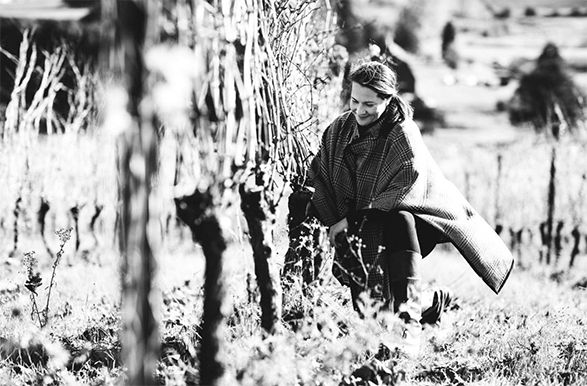 Were you affected by those wildfires?
Were you affected by those wildfires?Well, we're north. Thank God we're lucky enough to be shielded, but everybody was affected by the wildfires in one capacity or another. We started harvesting about a week before and we were able to get quite a bit in, but we stopped the harvest because it was incredibly dangerous for anyone to be outside for a good, solid week. So it's been a journey upon a journey.
In the beginning, your parents had one vineyard and you had two grape varietals, Chardonnay and Pinot Noir. Now you have four separate vineyards...
Five! Yes, just bought my fifth!
Can you talk a little about the different soils and climates of each vineyard and how they affect the growth?
Sure! We are still rocking the estate model at Cooper Mountain for better, for worse. And that it was really very selfish of us because there isn't a lot of certified organic and biodynamic fruit, if at all, that exists on the spot market. When we want to grow, we have to plant and we have to build new vineyards. It's the very long term. What started as two quickly became four and just became five about a year and a half ago. None of that has gotten into our wines yet because we needed to get it certified. The new vineyard that is on the south side of the Chehalem Mountains is a really great soil topography. It has rocks, it looks like Chateauneuf in the Willamette Valley. It has basalt rocks from a landslide about 10,000 years ago that are overlayed by the beautiful volcanic soil that we have here in the Willamette Valley. So that one was a little challenging to take from conventional farming into organic and biodynamic farming just because it's a lot of hand towing and et cetera, et cetera. But if I can make that vineyard biodynamic, anybody can make any vineyard biodynamic and organic with an incredible team.
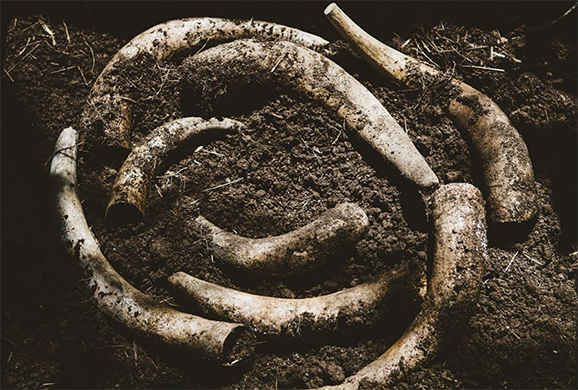 So the wines are very hedonistic. There's about 47 different soil types in this vineyard, so both marine sedimentary and volcanic soil. You literally have so many different expressions of time and then place and vintage within a 50-acre plot, which is why we love Pinot Noir. And then my oldest vineyard, which is the original vineyard that we're on, is basically a SOM (soil organic matter) soil. It's a cousin of Jory, which is our state soil, volcanic soil. I equate this to my parents and my father, it's just after growing grapes for 40 years, it is just the stoic, grounded vineyard that wildfires, pandemic...the wines are just going to produce incredible.
So the wines are very hedonistic. There's about 47 different soil types in this vineyard, so both marine sedimentary and volcanic soil. You literally have so many different expressions of time and then place and vintage within a 50-acre plot, which is why we love Pinot Noir. And then my oldest vineyard, which is the original vineyard that we're on, is basically a SOM (soil organic matter) soil. It's a cousin of Jory, which is our state soil, volcanic soil. I equate this to my parents and my father, it's just after growing grapes for 40 years, it is just the stoic, grounded vineyard that wildfires, pandemic...the wines are just going to produce incredible. 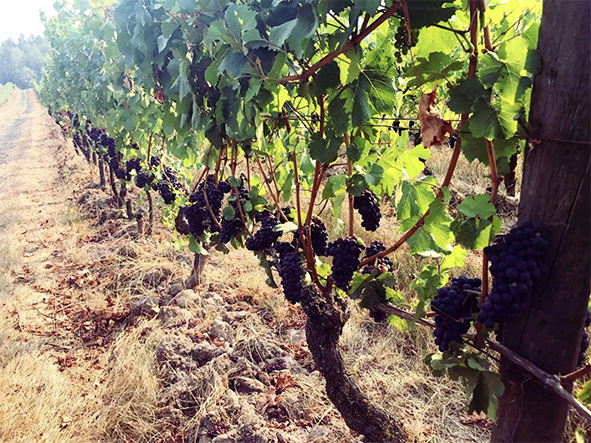 You obviously worked very hard out there and you put a lot of heart and soul into things. When you have a passion project like yours, it has to be gratifying to be recognized for it. I saw that you had a write-up in the New York Times a couple of years ago, that had to feel good.
You obviously worked very hard out there and you put a lot of heart and soul into things. When you have a passion project like yours, it has to be gratifying to be recognized for it. I saw that you had a write-up in the New York Times a couple of years ago, that had to feel good.Sure. I like to say when you're around for 40 years, the goal is just to be there. The Wine Spectator's review, the New York Times, the Wall Street Journal. I mean, everybody at some point has touched on everything which feels great. You just have to be there. The story's going to get told.
We try to educate. We try to bring to light all the hard work that you all are doing behind the label, behind the bottle. So that's what we do.
I will tell you that the one massive pivot and change that I hope that will come for the better of all of this because there was a while where culturally everybody, they were communicating their story and their wine and through a 100 point system of some sort. And that was the model and the equation and it worked and that's great. But it really unfortunately took us very far away from the interface of what customers want and what they need and what they're looking for.
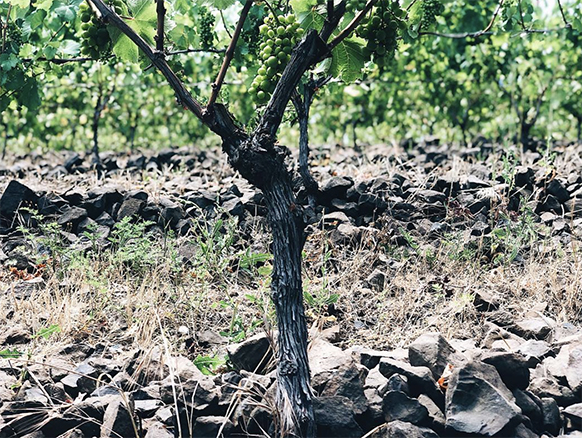 Points of view. Not points.
Points of view. Not points.Well, I think it's fantastic because I feel like for a long time, the wine industry talks to the wine industry, as opposed to talking to you and your customers about what you're seeing and what they're feeling. And this is great. That's my true positive takeaway from the pandemic is people who are doing really great, innovative things like this which we're just so honored and proud to be a part of.
So, Barbara, I just have one more question for you. What is your desert island wine?
Anybody who grows Pinot Noir is going to tell you one desert island wine. Price doesn't matter, it's all good?
All good, doesn't matter.
Of course it's Romanée Conti. Who doesn't want to do Romanée Conti? By the way, do you have some? Because I've never found some and nobody's ever given me any. I'm kidding. I'm kidding. So someday that magical moment is going to happen for me, but I still haven't tasted the holy grail.
